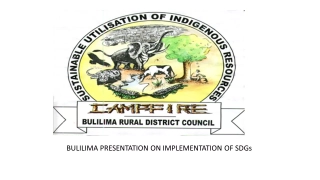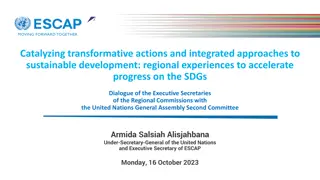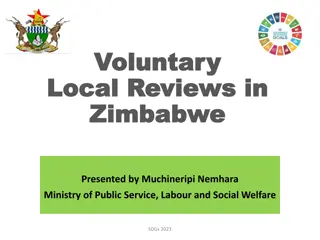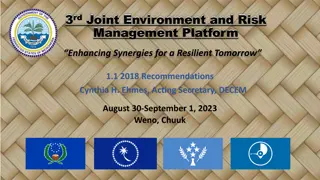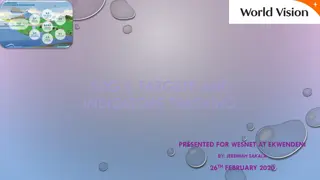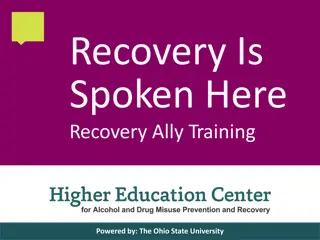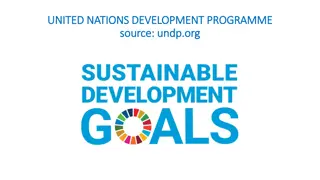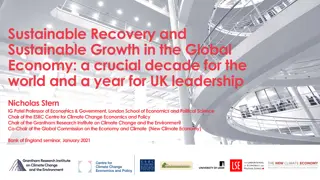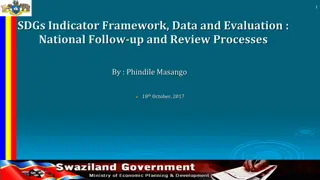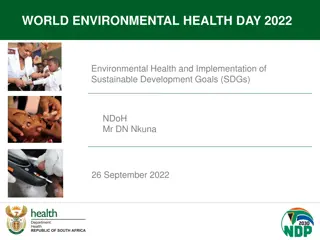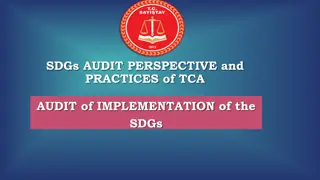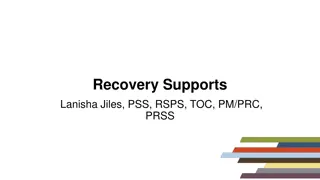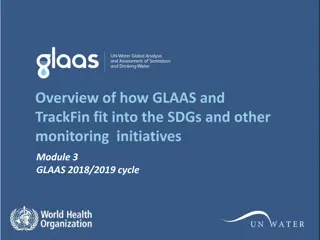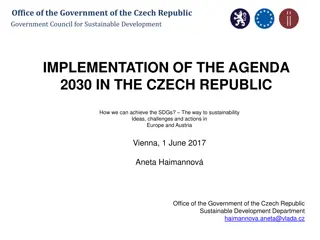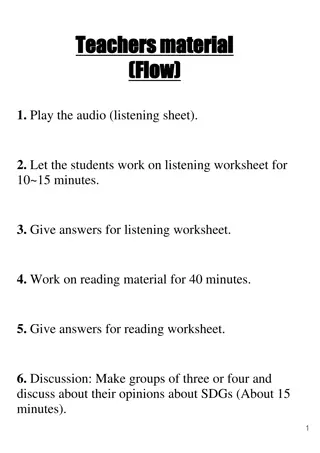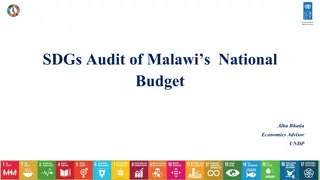Harnessing Climate & SDGs Synergies for Sustainable Recovery
The webinar explores the potential for a green and just recovery from the Covid-19 pandemic by highlighting the synergies between climate action, Sustainable Development Goals (SDGs), and economic recovery. It emphasizes the importance of promoting decent work, social justice, and environmental sustainability for a resilient future post-pandemic. The initiative aims to integrate green solutions into economic recovery plans while fostering innovation and entrepreneurship in sectors like telemedicine, urban farming, and sustainable mobility.
Download Presentation

Please find below an Image/Link to download the presentation.
The content on the website is provided AS IS for your information and personal use only. It may not be sold, licensed, or shared on other websites without obtaining consent from the author. Download presentation by click this link. If you encounter any issues during the download, it is possible that the publisher has removed the file from their server.
E N D
Presentation Transcript
UNFCCC-UNDESA Harnessing Climate & SDGs Synergies to Recover Better and Stronger from the Covid-19 Pandemic Webinar 2: Synergies for Just Transitions & Economic Recovery Thursday, 11 June, 10:00-11:30AM (NY time) Fostering a sustainable recovery with more and better jobs Moustapha Kamal Gueye, Head, ILO Green Jobs Programme Date: 11 / 06/ 2020
2 Winning the narrative on a green and just recovery from COVID-19 The COVID-19 pandemic exposed the multiple links between public health and the environment and made it evident that a healthy life and workplace and productive economies depend on a healthy environment. The lockdown measures and economic downturn resulted in improvements in air quality and emissions reduction. However, we must engage actively to correct what could be a false public perception and negative message, that the natural corollary of improving environmental conditions is economic and social damage of the scale experienced today, which could lead people to draw the wrong conclusions of what a green deal requires. The way governments, workers, employers and society at large responded to the COVID-19 pandemic shows that where there is a will, there is a way . There are no mutually exclusive choices to be made between environmental sustainability on the one hand, and vibrant economic activity, jobs and incomes, on the other. Advancing social justice, promoting decent work
3 ILO policy response based on International Labour Standards Advancing social justice, promoting decent work
4 Capturing the quick wins Fostering innovation, entrepreneurship and decent work in ITC-based solutions, telemedicine, urban farming, and sustainable mobility. Some examples: In many low-income countries, several prototypes of touch-less hand washing systems were produced using recycled and/or reused materials from carpenters and welders. The REMA Medical technologies platform, based in Benin, allowed more than 5000 African medical doctors from more than 20 countries to exchange information and data in real time and to develop a community of practice. In Ghana, a start-up is using drones to deliver medicines, blood and medical materials to health centres located in rural area, avoiding traditional road-based transportation. Taking a just transition perspective in fostering a green and sustainable recovery. Advancing social justice, promoting decent work
The Climate Action for Jobs Initiative Action area resulting from the 2019 UN Climate Action Summit 46 countries made a commitment on just transition Announced by the UN Secretary- General in Sept. 2019 and launched at COP25, Madrid, 12 December 2019 Placing decent work and livelihoods at the heart of climate action and a green recovery based on just transition principles


